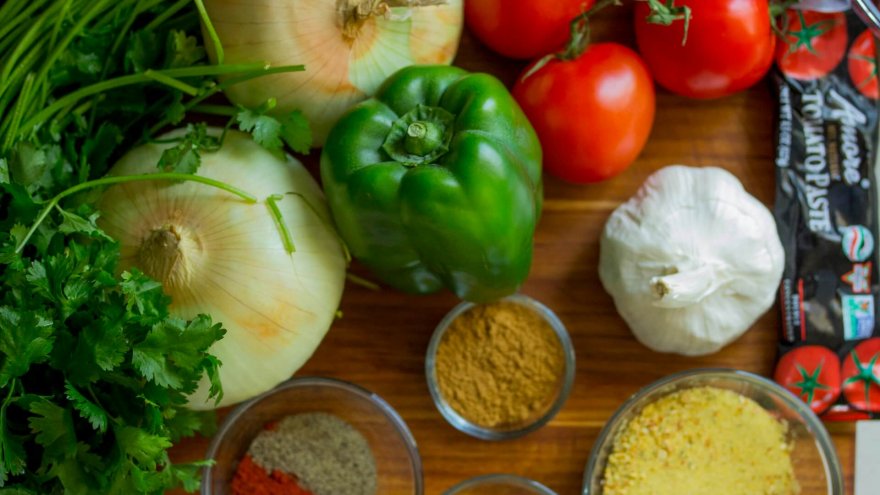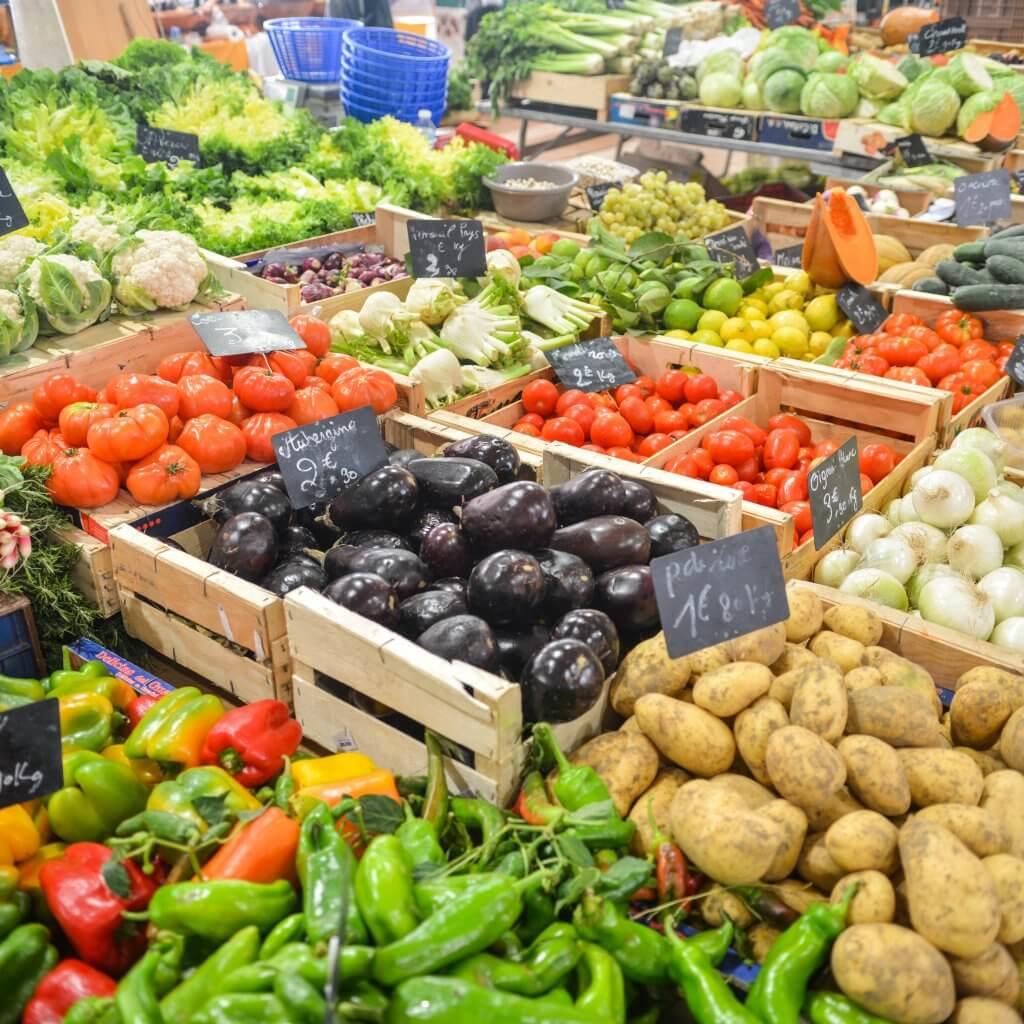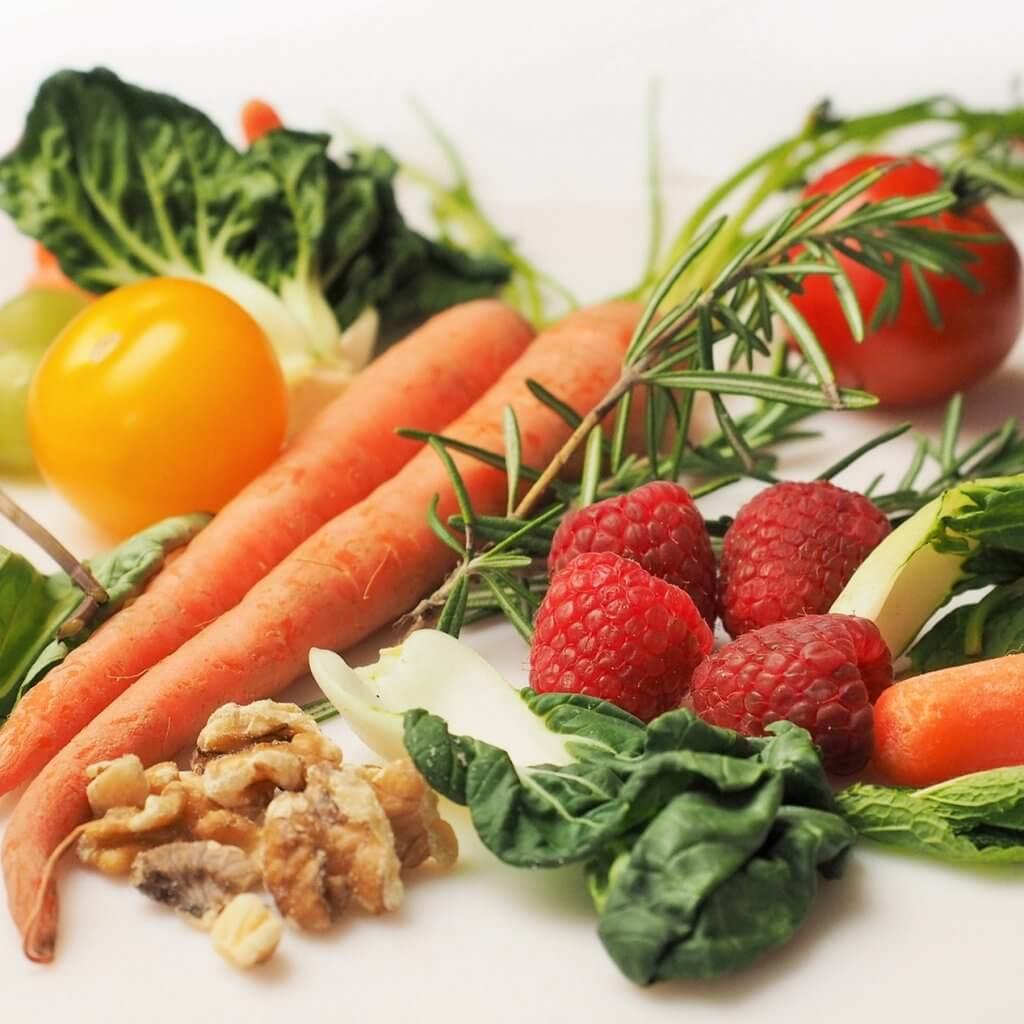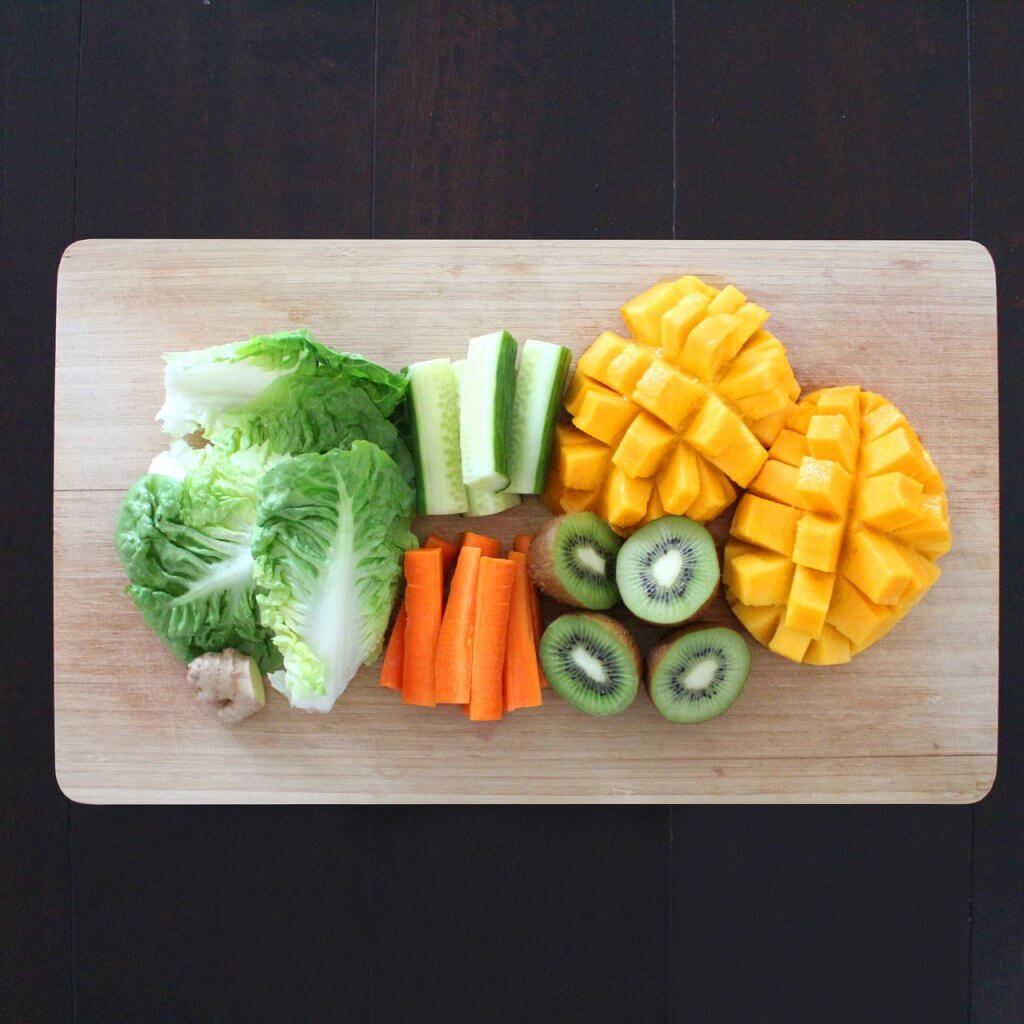Benefits of a Plant-Based Diet for Runners

In June of 2017, a report was released on Top Trends In Prepared Foods which found that the percentage of vegans in the U.S. has risen drastically to six percent, up from one percent in 2014. With an increase in promising information on the topic and the release of popular documentaries such as What the Health, Forks Over Knives, and Food Inc., more and more people are beginning to contemplate the potential benefits of transitioning to a vegan lifestyle.
Let’s start by clarifying: what exactly is a vegan or plant-based diet? And, why do people go vegan? Eating a plant-based or vegan diet means that you only consume foods that come from plant sources, and you do not eat any meat, fish, dairy, eggs, or other products that come from animal sources.

There are several different reasons why one might choose to cut out animal products from their diet. For one, you may have concerns about the ethical treatment of animals, particularly those being raised and slaughtered in poor and unsanitary conditions on factory farms. You might also be interested in veganism as a way to reduce your environmental impact. Although there are mixed opinions on the topic, some researchers, including those at the World Resources Institute, suggest that a vegan diet requires the use of much less land and much less water than a vegetarian or omnivorous diet. Studies have also found that livestock such as cows and pigs are responsible for over 20 percent of methane emissions, the amount of which from such livestock is increasing with each year. These emissions are one of the major causes of global warming. Lastly, you may be interested in a vegan diet for health reasons, from combatting chronic illness to lowering your cholesterol to decreasing your risk for heart disease and much more.
As a runner, however, you might be uncertain about making the change. How do you get enough protein, a crucial staple of the runner’s diet? Can you consume enough calories to fuel your long runs or your speed work days? Will you get the proper balance of nutrients?
The answer to all of these questions is, yes, it’s totally feasible to get all of the protein, nutrients, and calories that you need to perform your best without consuming any animal-based products! Take it from famous vegan runners like Scott Jurek, ultra-marathoner and author of New York Times bestseller Eat and Run, Helen Fines, one of Britain’s premier fells runners, and Carl Lewis, 9-time Olympic gold medalist in sprinting and long jump.

In fact, changing to a vegan diet could actually improve your health and your running performance. That’s why here we’re going to explore some of the unique benefits runners can expect to experience from switching to a plant-based diet.
- More energy. Eating a properly balanced plant-based diet, namely one that doesn’t consist of a lot of refined sugars and processed carbohydrates, can help you experience sustaining, long-lasting energy to fuel your exercise routine. Meat and dairy require a tremendous amount of energy to digest which can leave you feeling sluggish and can cause you to crash. Plant-based food sources are packed with nutrients that are easily digested and can keep you going long after your meals.
- Weight control. Going plant-based can help you to achieve or maintain a healthy weight. A landmark 2009 study of over 60,000 people found that those who follow a vegan diet have the lowest body mass indexes (BMI) compared with vegetarians and omnivores. Of course, you don’t need to be thin to be a runner and BMI isn’t the best metric for quantifying one’s actual physical health. But, being a good weight can help to prevent injuries and improve your breathing and heart rate.
- Improved kidney function. A vegan diet can help to improve kidney function, which is especially crucial for longer distance runners. A 2017 study in the American Journal of Kidney Diseases found that more than 80% of marathon runners experience acute kidney injury as a result of running a marathon. While the damage is temporary, repeated injury to the kidneys can cause complications in the long term.
- Reduced inflammation. Many researches have found that a vegan diet helps to reduce inflammation. While, inflammation is an important part of the body’s natural healing process, too much inflammation can result in chronic pain and swelling. As runners commonly experience inflammation in the joints such as the hips, knees, and ankles, going vegan can prevent or reduce the negative effects of inflammation. In fact, a 2015 study in the journal Arthritis found that people with osteoarthritis, a source of chronic inflammation, who followed a whole foods, plant-based diet for just six weeks experienced an improvement in their inflammation symptoms compared with those who maintained an omnivorous diet.

- Lower cholesterol. Many people take up running and other forms of exercise as a way to reduce their bad cholesterol (LDL). By embracing a vegan diet and performing regular aerobic exercise like running, you can dramatically decrease your bad cholesterol levels, putting you at a lower risk for clogged arteries which can cause chest pain, heart attacks, and strokes.
- Increased fiber intake. Fiber is a crucial part of everyone’s diet, and especially runners. Consuming fiber slows down the digestive process, allowing the body to better absorb the important nutrients from the food you eat. Because they consume a lot of fruits, vegetables, whole grains, and legumes, vegans get a lot more fiber than people with different diets and can truly reap the benefits fiber has to offer. It’s important, however, to time your fiber wisely and to not eat too much right before a run as the very thing that’s good about fiber, the way it slows your digestion, can also wreak havoc on your gut mid-workout.

Of course, as with any diet, it’s important to steer clear of processed and refined foods, and those high in sugars and saturated fats. Going vegan won’t automatically improve your health unless you also make smart choices about what you’re putting in your body and are conscious about getting a healthy balance of nutrients from a variety of foods.
It’s also completely possible to experience the benefits of veganism from eating a substantially plant-based diet, even if you’re not ready for or interested in going for it all the way. Many people across the world participate in “meatless Mondays,” a weekly challenge where folks cut out meat entirely every Monday. Try substituting tofu, tempeh, or seitan for meat in some of your favorite dishes as a good way to get started!
Sources
- , Whole-foods, plant-based diet alleviates symptoms of osteo-arthriti, Online Publication
- , Top trends in prepared foods 2017, Online Publication
- , Do vegans have more energy? Science says it all depends on diet. , Online Publication
- , Scientists underestimated how bad cow farts are, Online Publication
- , Kidney injury and repair biomarkers in marathon runners. , Online Publication
- , Shifting diets for a sustainable future. , Online Publication
- , Type of vegetarian, body weight, and prevalence of type-2 diabetes., Online Publication
Latest Articles
 Is Running on a Treadmill Easier Than Running Outside?Runners have their own preferences, whether it is treadmill running, running outside on the road, or exploring trails. So...
Is Running on a Treadmill Easier Than Running Outside?Runners have their own preferences, whether it is treadmill running, running outside on the road, or exploring trails. So... Is It OK to Use Trail Running Shoes on the Road?While trail running shoes can be used on roads, especially in situations where a runner encounters mixed terrains or pref...
Is It OK to Use Trail Running Shoes on the Road?While trail running shoes can be used on roads, especially in situations where a runner encounters mixed terrains or pref... How to Fix Sore Quads After Running?Rest, ice, gentle stretching, and over-the-counter pain relievers can help soothe sore quads after running. Also, ensure ...
How to Fix Sore Quads After Running?Rest, ice, gentle stretching, and over-the-counter pain relievers can help soothe sore quads after running. Also, ensure ... 10 Fruits With The Most Electrolytes to Replace Sports DrinksThese fruits are high in electrolytes such as potassium, magnesium, and calcium, essential for hydration, muscle function...
10 Fruits With The Most Electrolytes to Replace Sports DrinksThese fruits are high in electrolytes such as potassium, magnesium, and calcium, essential for hydration, muscle function...

